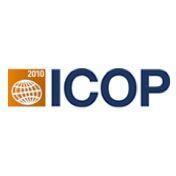
ICOP, the annual International Conference of Producer Organisations (POs) operating within the fresh fruit and vegetable trade is due to take place again on 25-26 November in Vienna, Austria. Hosted for the fifth time by Austrian consultancy gfa, the watch-word at this year’s event will be ‘responsibilities’, with attention set to be placed on the term’s different meanings within the agrarian economy and the food sector.
Speakers who have already confirmed their participation include: Roland Waardenburg, vice-president of corporate responsibility at Dutch retail group Ahold; Rudy Van der Stappen, department head of unit at the European Commission’s Directorate-General for Agriculture and Rural Development; Marc Evrard, market development director at Belgian producer organisation BFV; and Frans van Dijk, general director of Holland-based fresh produce auction ZON.
'Responsibilities is a key word that especially concerns the food industry,” explains gfa chief executive Wolfgang Braunstein. “Responsible thinking and acting – considering the present time as well as the future – is also a basic factor for the success of POs.” According to Mr Braunstein, ICOP’s varied and detailed programme provides those working in European producer organisations the tools they require to gain experience and knowledge of the trade when faced with ongoing global economic challenges.
Several key speakers from some of Europe’s leading producer organisations, including marketers, strategists, researchers and quality managers, will be on hand at the conference to offer their insight, ask vital questions and anticipate future trends in the fruit and vegetable sector. The event will also include workshops on topics including sustainability and dealing with periods of crisis. According to gfa, more then 100 participants from across Europe are due to attend ICOP, where they will also be able to enjoy extensive opportunities to meet and network with colleagues from across Europe.
An uncertain future
Uncertainty over the future of POs within Europe’s fresh produce sector is likely to be a key topic for discussion at this year’s event. Last month, European farming organisation Copa-Cogeca urged EU agriculture ministers to prevent what it said would be “a complete collapse” of the market by ensuring the EU agri-food sector remains competitive and that there is a strong Common Agricultural Policy (CAP) after 2013. Speaking at an informal meeting in Brussels last month, Copa president Padraig Walshe and Cogeca president Paolo Bruni took the opportunity to remind ministers that farming was, first and foremost, an economic sector that underpinned the largest manufacturing sector in Europe. Mr Walshe warned: “I have heard rumours the Commission is thinking about a significant shaping of Pillar 1 under the CAP to bring a much greater environmental focus into the policy. This is not acceptable and could seriously harm the economic performance and competitivity of farming in the EU.”
He also questioned the Commission’s decision to restart talks on liberalising trade with the Latin American trade bloc Mercosur, a move he said would have a “devastating impact” on EU agriculture. “Imports from these countries do not have to comply with the same high EU standards,” he continued. “To maintain food security and employment for over 28m jobs in EU rural areas, a strong CAP, which preserves the economic role of farmers in producing food, is crucial.”
Copa-Cogeca also called on the remaining market management measures within the CAP, including direct payments to farmers, to be retained after 2013 in order to stabilise farmers’ incomes and help them weather the storm of increasing market volatility. “The second pillar of the CAP should be the instrument to deliver additionality, providing targeted services and agri-environment measures,” Mr Walshe added.
Meanwhile, Cogeca president Paolo Bruni stressed: “The food chain currently does not work properly. The existing lack of transparency and the problems with late payments, market abuses and distortions of competition in the food supply chain cannot be accepted. I want to see better prices for farmers and agri-cooperatives. European Competition rules must be adjusted to enable cooperatives and producer organisations to grow in size and scale, giving them more power in the food supply chain. To sum up, a strong CAP is vital to provide EU consumers with high-quality food whilst ensuring a fair and stable income for EU farmers.”
Mr Walshe gave a final word of warning: “We had a crisis in EU farm incomes in 2009. This year we have experienced once again increased volatility and failures in international trade. Do we really have to wait for a complete collapse of the market for you to take notice?”



